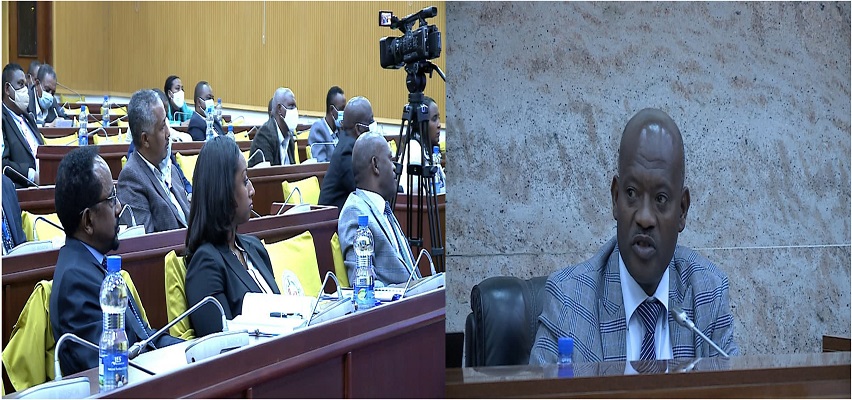Transport sector should be planned as to identify weaknesses

Transport sector should be planned as to identify weaknesses
(Parliamentary News) May 18, 2021: Addis Ababa, The Standing Committee on Urban Development, Construction and Transport Affairs of the House of Peoples' Representatives has called for a plan to work to identify the shortcomings of the transport sector.
The Standing Committee expressed this concern while reviewing the performance of the Ministry of Transport for the first nine months of the 2013 fiscal year.
To address the problem of design change, boundary enforcement, limited capacity of contractors and lack of supervision and support, and to reduce the illegality associated with vehicle and driver licensing, questions were raised and responded by the Minister and State Ministers of the Ministry.
The Standing Committee pointed out that the budget allocated to the Roads Fund Authority should be taken into account as the budget for repairing road projects is high.
The Standing Committee strongly estimates that the average shipping cost has been reduced by 12 days from the previous 24 days, which has saved more than 559 million birr logistics in the last nine months. In addition to Djibouti, the ministry will use the ports of Tajura, Berbera and Sudan in modernizing the country's revenue and exports, streamlining the service system and expanding port options.
The Ministry of Transport Minister Honorable Dagmawit Moges, on her part said action has been taken against those involved in the illegal licensing of vehicles and support is being provided to those in need . She added that the number of fatalities and death rate is lessening due to the work done during the budget year.
Ethiopian Roads Authority Engineer Habtamu Tegegn, for his part, said the sector is complex in nature and is working to identify and solve problems. He said the authority is under pressure from more than 200 projects and 61 of the projects started are in crisis and 24 have been disrupted due to security concerns.
State Minister of Transport, Kassahun Gofe, on his part said changes are being made in the region due to the agreement reached with regional leaders and stakeholders. He added that especially in the implementation with the delay in the construction of roads the burden of pre-construction and construction is high and the cost of border enforcement alone has risen to more than 10 billion.
By Yared Eshetu
Copyright 2020 - All rights reserved. House of Peoples' Representatives
